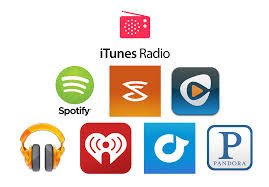
In the Era of Streaming, What’s the Point of Loading Up the Fourth Quarter with New Releases?
The recording industry’s fiscal year, which runs concurrently with the calendar year, used to look like this:
Q1 (Jan-Mar)
As the slowest quarter of the year, it was something of a dumping ground. Want a cheap #1 debut? Schedule your album for release in the first week of January when no one else has anything new. Otherwise, the recording industry worked to squeeze the last bit of sales out of the previous year’s releases. What do you think the Grammys are for?
But Q1 isn’t always neglected. Big acts prepping summer tours sometimes scheduled major releases for late February or early March. Just to get a jump on everyone else, you know?
Q2 (Apr-Jun):
The big ramp-up to summer. As the weather in the Northern Hemisphere gets warmer, so does the heat around anticipated releases, making this the second-most important quarter of the year. Record Store Day, which is held on the third Saturday of April, has made it more interesting, too.
Q3 (July-Sept):
A weird in-between quarter. Most of the big releases are out for summer and there are tentative moves towards setting up fall releases. Q3 is the third most-important period of the year.
Q4 (Oct-Dec):
The big one, the make-or-break quarter for labels as people shop for Christmas. The biggest records are often held back until at least September so they can peak just as holiday shopping does.
At least that was the way it used to be when the metric for success was sales. Those days are gone.
Today, it’s all about consumption. Sure, a lot of records might be sold in the fourth quarter, but how many were just filed away, never to be heard again? With streaming, we know exactly what songs people are listening to and how often. Streaming numbers have eclipsed sales reports when it comes to meaningful measurements of success.
And as Steve Knopper points out in the New York Times, people aren’t streaming the big new Q4 releases that are so carefully being marketed and hyped. They’re listening to Christmas music.
It wasn’t so long ago that a blockbuster fourth-quarter album by a music superstar could rescue a record company from financial ruin, or at least a slow sales year. Think of Jay-Z’s “Kingdom Come,” which sold 680,000 copies during Black Friday week in 2006 and showed up beneath plenty of Christmas trees that year.
But in today’s world of Spotify, YouTube and Apple Music, music fans are paying less attention to those kinds of late-in-the-year releases. They’re too busy streaming Christmas music.
“For the first time, this year, we are actually dissuading our labels from releasing albums in the December time period,” said Vinnie Freda, the Warner Music Group’s chief data officer. “It’s like the world stopped between Dec. 7 and Dec. 28. It’s like people stopped listening to music.”
These are boom times for holiday music, with overall streams increasing to nearly 2.4 billion in the fourth quarter last year from almost 1.3 billion in the same period in 2015, according to Nielsen Music.
But with the exception of a few traditional pop-star releases, including Taylor Swift and Sam Smith this year and Adele in 2015, shopping-season superstar albums have become noticeably more absent.
Many in the record business are encouraging the biggest stars to put out albums in other months like January, after people receive iTunes gift cards and streaming subscriptions for Christmas presents, and September, when students get ready to go back to school.
“The business is shifting,” said Steve Berman, vice chairman of the Interscope/Geffen/A&M label. “As you look at where consumption is going, it certainly will become less and less reliant on that big, fourth-quarter tent pole.”
Times, they are a-changin’. Keep reading.
